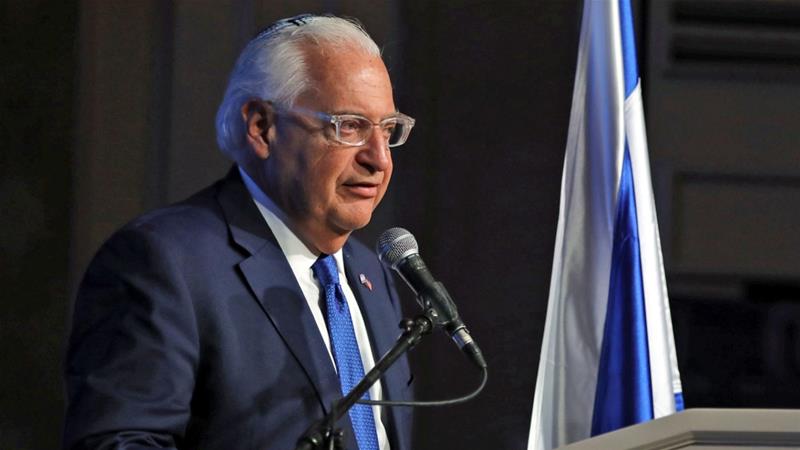Australia/Israel Review
Deconstruction Zone: Annexation Imputations
Jun 27, 2019 | Alan Dershowitz

The United States Ambassador to Israel, David Friedman has been criticised for making the following statement: “Under certain circumstances, I think that Israel has the right to retain some, but not all, of the West Bank.”
His critics argue that Israel has no such right under international law because “this is occupied territory that cannot be annexed.”
Friedman is correct and his critics are wrong.
I know, because I participated – albeit in a small way – in the drafting of United Nations Security Council Resolution 242 back in 1967, when Justice Arthur Goldberg was the United States Representative to the United Nations. I had been Justice Goldberg’s law clerk, and was then teaching at Harvard Law School. Justice Goldberg asked me to come to New York to advise him on some of the legal issues surrounding the West Bank.
The major controversy was whether Israel had to return “all” the territories captured in its defensive war against Jordan, or only some of the territories.
The end result was that the binding English version of the United Nations Resolution deliberately omitted the crucial word “all,” and substituted the word “territories,” which both Justice Goldberg and British Ambassador Lord Caradon publicly stated meant that Israel was entitled to retain some of the West Bank.
Moreover, under Resolution 242, Israel was not required to return a single inch of captured territory unless its enemies recognised its right to live within secure boundaries.
Friedman is right, therefore, in these two respects: (1) Israel has no right to retain all of the West Bank, if its enemies recognise its right to live within secure borders; (2) Israel has “the right to retain some” of these territories. The specifics – the amount and location – are left to negotiation between the parties.
In the last month of his Administration, US President Barack Obama pushed through a UN Security Council resolution that declared all of the captured territories – including the Western Wall, the Jewish Quarter and the access roads to Hebrew University and Hadassah Hospital – to be illegally-occupied territories.
That benighted resolution was categorically and correctly rejected by Israel. It does not represent binding international law, and virtually no one believes that the Western Wall is being illegally occupied by Israel. Indeed, nearly every world leader who has visited Israel – including Obama – has prayed at this illegally “occupied” sacred place.
The reality is that Israel will, under any circumstances, maintain control over these traditionally Jewish areas, as well as the settlement blocs close to the Green Line. How do I know this? Because Palestinian Authority President Mahmoud Abbas has told me on more than one occasion when we have met.
Abbas wants this to occur as a result of negotiations. The problem is that Abbas now refuses to accept the invitations by President Donald Trump and Prime Minister Benjamin Netanyahu to sit down and negotiate these issues.
In 2000-2001 the Palestinians were offered a deal in which they would control more than 90% of the West Bank. In 2008, they were offered an even more generous deal. In both such deals, and most likely in the one now being drafted by the Trump Administration, the Palestinians will get Israeli land equivalent to the West Bank land that Israel will annex. The Palestinians have either rejected or refused to negotiate over these offers.
So when Ambassador Friedman talks about “certain circumstances” that would lead Israel to “retain some” of the West Bank, he is likely referencing circumstances under which the Palestinians would persist in their refusing to come to the bargaining table.
The Palestinians can end this untenable status quo by agreeing to compromise their absolutist claims, just as Israel will have to comprise its absolutist claims. The virtue of Ambassador Friedman’s statement is that it recognises that both sides must give up their absolutist claims, and that the end result must be Israeli control over some, but not all, of the West Bank.
Ambassador Friedman’s statement is not a barrier to peace or negotiations. It is a realistic recognition of what Israel will demand, and what the Palestinians will ultimately have to agree to, regarding territorial compromise.
Alan M. Dershowitz is the Felix Frankfurter Professor of Law Emeritus at Harvard Law School and author of more than a dozen books. © Haaretz (www.haaretz.com), reprinted by permission, all rights reserved.
Tags: Israel, Palestinians






